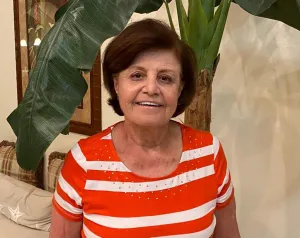Update - Ahli Arab Hospital
February 23, 2024
Dr. Suhaila Tarazi is the director of North Gaza’s Al-Ahli Arab Hospital, which is owned and operated by the Episcopal Diocese of Jerusalem and is a partner of the Anglican Church of Canada and the Canadian Companions of Jerusalem. Since the war between Israel and Hamas began Oct. 7, the hospital has continued to serve the people of North Gaza, and at times has been the only hospital still functioning there. It has carried on amid tragedy and disruption; an October explosion in the hospital’s courtyard killed and injured about 500 people who had taken shelter there, and in December, the hospital was raided by the Israel Defense Forces (IDF), who detained most of the hospital’s staff for questioning.
On Jan. 17, with the conflict dragging on, supplies running low and injured Palestinians continuing to pour in, the Anglican Journal spoke with Tarazi about life at Al-Ahli Arab Hospital during the war and its outlook for the future.
This interview has been edited for length and clarity.

How are things at the hospital right now? What’s the current situation?
In Gaza, it is a catastrophic situation in general and also at all hospitals since Oct. 7. The bombardment is unbearable. Up till now we have more than 30,000 killed people. Seventy per cent of them are children and women. Plus the total of injured is about 61,000 up until today. [Editor’s note: As this article was being posted online, Gaza’s health agency estimated almost 30,000 people had been killed in the fighting and almost 70,000 had been injured.] And the other problem is displaced people; nearly 80 per cent or 85 per cent of the population now are displaced. They are forced to move from Northern Gaza into the south and they are practicing a very difficult, inhuman life there.
And people, even nowadays, are going through another war: not only the bombardment from air and sea and land—also now they are facing acute food insecurity and a risk of famine is coming very soon. And this situation reflects directly to the work of Ahli Arab Hospital.
Ahli Arab Hospital is a Christian hospital; our aim [is] just to serve, to serve all people without any discrimination. And this is the mission of our Christianity. Unfortunately the hospital passed through two catastrophic situations, the first one on the 17th of October, where because of a bombardment directly into the hospital, 500 children and women were either injured or dead. And that was for us really a very major event
Would that have been the explosion in the courtyard?
Yes, exactly. And when you are among those children and trying to relieve their anxiety and fear and then after two hours somebody phones you and says they are all dead, it’s really something breaking all hearts. Breaking all hearts.
So you were with them in the courtyard before the explosion? Did I understand that correctly?
Yes, that’s right. Very painful memory. Nearly all of them dead.
And the second incident happened on the 18th of December when tanks demolished the infrastructure of Ahli, the outer wall, the play garden of the children, and the [IDF] detained most of Ahli Arab Hospital staff members. It was very hard to know how to take care of about 150 patients who were taking their treatment at the hospital. The hospital at that time was left with only seven people.
Luckily they didn’t enter the hospital because I’m sure that everybody knows that we are a neutral body, but that’s what happened that day.
Israel has said that Hamas has been operating out of hospitals. Is that why they would’ve been checking?
I don’t know, but not at Ahli. I want to assure you of that. For Ahli, we are a Christian institution. The management are all Christians.
I think they [took] our staff when they had suspicion, but they have released Ahli Arab hospital staff because they are sure that we are not a part of any political party in Gaza.
So they left you with seven staff and 150 patients. Can you give me any details about how staff handled that?
To tell you the truth, we stopped [the] emergency department. We didn’t receive any patients for emergency, and these two doctors, they were working 24 hours a day just to look after, to [keep] stable the cases that we had at the hospital.
And how long did they continue working 24-hour days?
It took us a week. And then after the tanks left the area of Ahli Arab Hospital, we started to repair the damage to the infrastructure and started working again. But thank God recently they released most of the staff.
That was really another issue that was critical for Ahli—how could we continue serving people? Ahli Arab Hospital at that time was the only hospital left in operation to serve all the northern area of Gaza. We had to adjust our plan and we tried our best to just focus on taking care of the patients who were still at the hospital and on the waiting list for surgeries.
The main problem that we are facing today is big shortages of medicine and medical supplies, especially antibiotics, especially anesthesia, drugs and other consumables such as screws for orthopedic surgeries, dressing sets, all such things. There is a big need for it at this moment and since the 7th of October, there is no electricity in Gaza and we have been depending on solar cell panels and fuel. Unfortunately, the solar cell panel system was attacked and at the time being we can use only 20 per cent power of that system. Most of the nights nowadays, patients and staff are spending nights without any electricity.
Fuel is a big problem. We can’t operate the generator all the time, only in certain hours when the operating theatre is working. Otherwise, we are unable to resume our work and save lives.
So is your emergency department up and running now?
Actually, because of the number of staff we are even receiving casualties not related to the war—for example, children with diarrhea, with infections, chronic cases needing urgent treatment. Yes, we receive that, but casualties [are] all the time [coming] directly to Ahli Arab Hospital. We have adjusted our plan to only conduct surgeries for injured patients who are in need of procedures. And we are conducting daily more than 20 surgeries in one operating theatre.[Often] we don’t have enough stuff to operate another operating theatre or we don’t have enough fuel to keep electricity working in [the whole] hospital.
Since the 7th of October, it wasn’t easy to get medicine and medical supplies. During all this time, the WHO [World Health Organization] has succeeded in giving medicine and medical supplies in [only] minimum quantities to Ahli Arab Hospital, and unfortunately we are still suffering over big shortages of them.
And there is another problem. Nowadays, we don’t have food at the hospital, and for more than one month, we minimize the meals to offer only one meal a day—which contains only rice and dates—to the patients and to the staff members. I don’t know what we will do if the situation continues like that.
Something you haven’t spoken of much is your own day-to-day work. What has it been like?
The work in the hospital is not one person’s work. It is collective work. During emergencies, anything that needs your input, you have to work on it. And during war, there is no planning [ahead] at all. You have to plan according to the situation, what the situation imposes on you to do. Possibly at midnight you will have a call and you have to be attentive and react accordingly.
During emergencies, my administration staff were side by side with the medical staff carrying patients, doing first aid and triage and so on. During emergencies, everybody who has something [they can] do has to do it.
At first, we were the only hospital dealing with all [kinds of] accidents. But I think nowadays there are other hospitals [coming] back partially into operation, especially the government hospitals, and they are dealing with direct casualties.
Nowadays, because of the shortage in staff, we’re only dealing with patients who are triaged and in need of surgeries.
Who brings them to you?
Ambulances. And sometimes families. It’s really very touching when you see an injured patient on a donkey coming to Ahli Arab Hospital because there is no other transportation.
What are the typical injuries?
Burn cases, broken bones mainly, and sometimes those who are in need of abdominal surgery.
I’d like to ask, how are you feeling?
Really, it’s a very devastating situation and as a human being, I feel sorry for all victims of this current violence. Whether they are Palestinians or Jews, we are all creatures of one God. And after all, Arabs and Jews are brothers. We are the children of Abraham. It’s therefore really breaking [my] heart to see the brothers are fighting. [Voice shaking]
I want to thank you for sharing that with me. I can hear that it’s not easy for you to discuss.
Yeah.
What does the future look like?
We never lose hope and we are looking for a ceasefire because in war there is no winning. We’re all losing, and this thing is urgent. Until we can come together and sit around a table and have negotiations, the situation will be bad.
The big solution is negotiation and a round table, it will solve all problems.
Anglican Overseas Aid is proud to be a long-term partner of the Ahli Arab Hospital.
This article was originally posted in the Anglican Journal.





